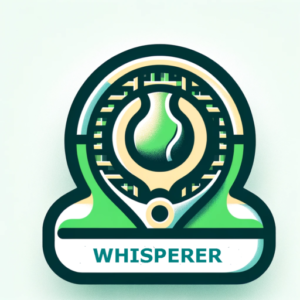The Power of Belief: Alcaraz
The Power of Belief: Alcaraz
Carlos Alcaraz didn’t blow Lorenzo Musetti off the court in their French Open semifinal. And he didn’t out-hit Jannik Sinner in the final either.
Sinner owned the short points, especially early. Through the first set and into the second, he led 32–14 in rallies of four shots or fewer—stretching that edge to 38–14. Even as Alcaraz mounted his comeback, Sinner controlled the quick exchanges, ultimately finishing with a 108–95 advantage in short points.
But Alcaraz didn’t need to dominate the stats. What he showed instead was the most undervalued skill in high-performance tennis: belief. Belief when you’re down two sets. Belief when your rival holds match points. Belief that your preparation and patterns will carry you—because they’ve been battle-tested when no one was watching.
1. Belief Replaces Panic
Let’s talk more data. Against Musetti, Alcaraz landed just 41% of first serves in the opening set—a red flag for any aggressive baseliner. But instead of forcing, he recalibrated. Upped his percentage to 65% in set two. Took control.
Against Sinner? He faced the abyss—down 3–5, love-40 in the fourth set, with Sinner serving for the title. Three match points. Gone. Alcaraz didn’t flinch. He played ball by ball, not scoreboard by scoreboard. A flicked backhand winner. A passing shot on the run. A 13-of-14 point surge.
Champions don’t panic—they adapt. And belief is what buys you time to adapt under fire.
2. Strategic Belief Beats Emotional Tennis
There’s a rule I teach often: If you lose the first set, get to 4–4 in the second. Not 6–4. Not a miracle tiebreak. Just 4–4. That’s the inflection point. That’s where pressure flips.
Alcaraz lives this. In both the semifinal and final, he transformed pressure into performance—not through emotion, but through execution. He didn’t play heroic tennis. He played pressure-conditioned tennis—ritual-driven, pattern-disciplined, anchored by belief.
3. Why We Train Tiebreakers
There’s a reason why our training sessions lean heavily on tiebreak scenarios—because tiebreaks are turning points. In the second-set breaker against Musetti, Alcaraz played with surgical calm.
In the fourth-set breaker against Sinner, he trailed 0–2 and won seven of the next eight points.
From 0–40 down to a 7–3 breaker win—those moments weren’t just about strokes. They were surges, fueled by belief. And once he seized that momentum, the match shifted from battle to procession.
4. Train Your Belief Like You Train Your Backhand
Belief doesn’t just show up. You build it. Like footwork. Like VO2 max. Like your first step. Try this:
-
Start practice sets down a break
-
Play tiebreaks only after tough intervals or with heavy legs
-
Use your rituals—breath, bounce, cue word. Lock it in.
If you can’t hold belief in practice, You won’t hold it at 4–5, 30–40, second serve. And definitely not at 4-6 down in a tie breaker. Simple as that.
Belief Is the Edge
Belief is not a feel-good accessory. It’s your edge. Your answer when your serve deserts you. Your fuel when fatigue tightens your chest. Your weapon when the opponent thinks it’s over.
You earn it in the shadows—When no one’s watching, When you’re losing in practice sets, When no one believes but you.
When Belief Ages With You
But what about you—the aging player who’s no longer 22, who feels the whisper of doubt more than the roar of confidence? That’s where belief shifts. It’s not loud anymore. It’s quieter. More deliberate.
You don’t just doubt the score—you start to doubt your body. Will it move when you ask? Will the legs hold up? At that point, belief becomes memory.
You remind yourself: I’ve been here before. You trust the odds—not because they promise victory, but because they’ve favored you more often than not. And yes, probability teaches that sometimes you’ll come up short. But that’s not failure. That’s just reality.
You swing anyway—because belief, even in its mature form, still gives you your best chance to win.
Wrap: Belief Is Bigger Than Tennis
Alcaraz didn’t win because he was perfect. He won because when perfection failed, belief didn’t.
Next time you’re down—on court or off—don’t flinch. Reset. Breathe. Play one more point.
Because belief, trained and tested, Beats talent that doubts itself every time.



